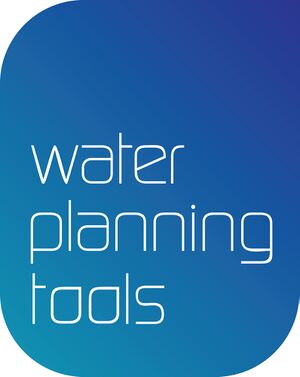
The Water Planning Tools is a research and development project which develops tools to assist communities and governments as they address challenges in water allocation and water quality planning. It aims to extend knowledge and skills into the water planning sector, and to inform policy-making at national and state levels.The project is an initative of a number of Australian universities and research providers, and is funded through a joint partnership between the National Water Commission and Land & Water Australia.
About the Project[edit | edit source]
This project aims to improve the certainty, legitimacy and efficiency of water planning processes across Australia. It will develop and trial a range of applied knowledge products in water planning including good practice tools, decision support systems and mechanisms targeted to address key issues in selected catchments.
A small multi-disciplinary team is working on this project. The project team comprises researchers from Griffith University, CSIRO, Sunshine Coast University and Charles Sturt University.
Individuals on the research team have well-established research and practical real-world track records in water research and natural resource management. Our wide ranging expertise in water includes legal, policy, social, economic, science including climate change with some of the best expertise in water and NRM planning, knowledge and adoption processes Australia wide.
This project will pilot tools in three planning processes in South Australia, Queensland, and the Northern Territory. The project team will work with stakeholders and government agencies to identify matters important to them in water plans and together will develop tools to address these matters. The tools may have been used elsewhere in similar situations.
Project Objectives
[edit | edit source]
This project will:
- comprehensively identify the current gaps in implementing water planning processes in relation to the requirements of the National Water Initiative
- develop good practice tools and mechanisms to address these gaps in a practical sense across all jurisdictions
- provide important information for the benefit of water planning processes across all jurisdictions, and
- lead to improvements in the way water plans are developed and implemented on the ground.
The project will improve water planning effort at two levels:
- Nationally - by developing a tool-kit of good practices to engage industry, Indigenous and rural communities; by setting guidelines and benchmarks to monitor and evaluate collaboration in water planning; by establishing procedures that integrate Indigenous values into water planning.
- Regionally - by assisting water agencies to improve water planning approaches; by helping to minimise conflicts between parties; by providing models and case studies for good collaboration; by helping develop stronger long-term relationships between stakeholders.